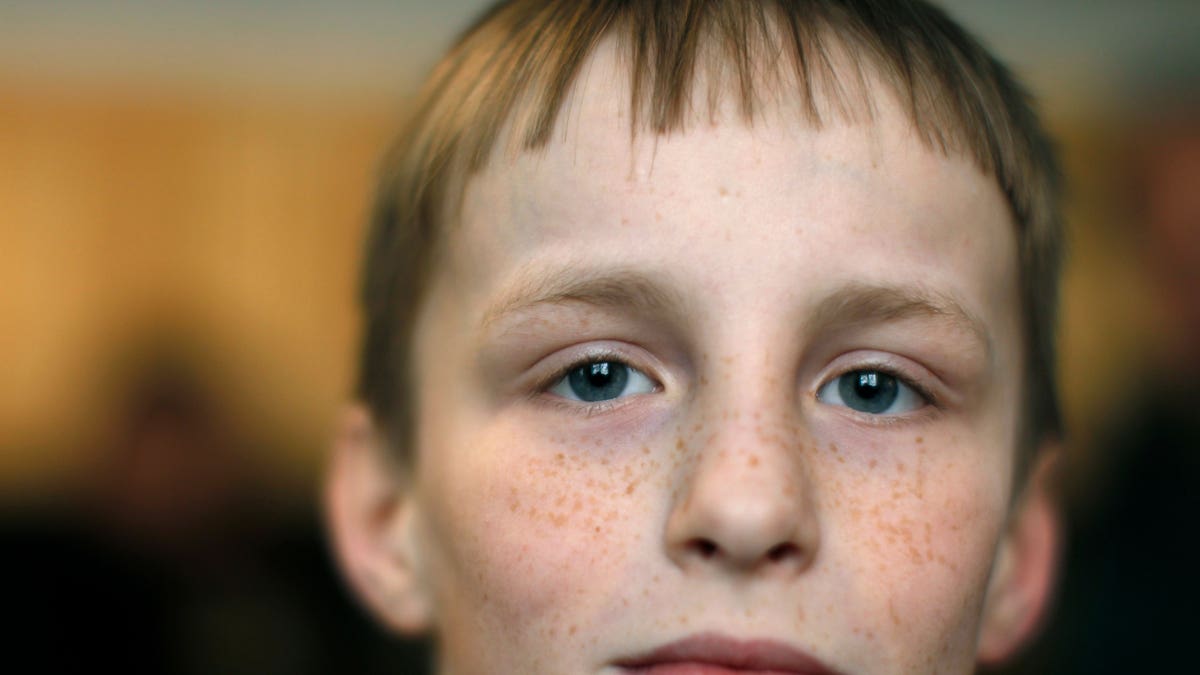
April 12: Artyom Savelyev, a 9-year-old Russian boy, is in a foster home in Tomilino, outside Moscow. (AP)
TOMILINO, Russia – Two years after Artem Saveliev's American adoptive mother put him alone on a plane back to his homeland, the towheaded 9-year-old shivers and barks "No!" when asked if he ever would go back to the United States.
The boy who instantly became a potent symbol of failed adoption policies now lives in a cheery home in a village of foster families near Moscow. As he tries to move forward in his life, the legacies of his case reverberate deeply through U.S.-Russian relations.
His treatment ignited outrage in Russia toward the United States, temporarily halted American adoptions of Russian children, sparked investigations in both countries and touched off an emotional debate about whether U.S. couples could trust Russian information on children they were seeking to adopt.
But what about the boy himself?
Officials have generally refused journalists' attempts to visit Artem, saying the attention would likely distress him and hinder his adjustment to his new life in Russia. But on Thursday, Pavel Astakhov, Russia's children's ombudsman, arranged a rare visit by journalists to Artem's village, partly to draw attention to two looming court cases involving Torry Hansen, the American woman who adopted and then ditched the boy.
Artem was shy and taciturn, revealing little more of his life than that he finds "Russian spelling" to be the hardest part of school.
His Russian foster mother, meanwhile, says Artem needed months of counseling and speech therapy after his return.
In April 2010, Hansen sent 7-year-old Artem from Tennessee back to Russia on a one-way plane ticket with a note saying he had psychological problems and she didn't want to be his mother anymore. No criminal charges were ever filed in the U.S.
His new caregiver, Vera Yegorova, says any memories of Artem's life in Tennessee remain a "taboo" for him. She said it took months of sessions with a psychologist and a speech therapist for the boy to start communicating again.
"He is no different now from other children," said Yegorova, a plump, vivacious 53-year-old who has raised 17 foster children at the village run by the international charity SOS.
The village consists of about a dozen houses on the edge of a forest. Five other children live in the same house with Artem and all go to a nearby school.
But for all the superficial normalcy of his new life, Artem also appears troubled. He can say "thank you" in strongly accented English, but otherwise resists speaking in English. He gets poor grades in school, has trouble communicating and speaks in short sentences.
Astakhov, who was on the visit to the foster village, said Russia is suing Hansen, demanding that she pay about $2,300 a month for Artem's foster care and "psychological correction." It is unclear how much of that psychological care was related to the boy's U.S. experiences or was needed due to earlier issues that Hansen had complained about.
A trial in that case begins in May, along with a separate proceeding in which Astakhov says Hansen has sued him and a Russian newspaper for libel.
Meanwhile, a Tennessee judge ruled last month that Hansen is liable for child support in a lawsuit brought by her former adoption agency.
Hansen now lives in California but her exact whereabouts aren't known. She couldn't be located for comment Thursday, and after firing three lawyers who previously represented her, she no longer has an attorney to speak for her in the U.S. child support case.
For years, Russia had been one of the biggest sources of adopted children for Americans. Artem's arrival put a halt to that, and Russian officials have claimed that at least 17 adopted Russian children have died in domestic violence in American families.
On Thursday, the State Duma, Russia's lower house of parliament, said it would ratify a U.S.-Russian agreement on adoptions within weeks.
The deal stipulates that better information will be provided to prospective parents about the social and medical histories of Russian children. Once an adoption has been completed, the U.S. agency that made the arrangements will be required to monitor the living conditions and upbringing of the child, scheduling periodic visits by a social worker and sending reports to Russian authorities about the child's development.
In cases where adoptive parents seek to dissolve an adoption, the agency will be required to notify Russian authorities and the U.S. State Department.
More than 60,000 Russian orphans have been successfully adopted in the U.S., according to the National Council For Adoption, a U.S. adoption advocacy nonprofit group.
The group has hired an attorney to help in the case seeking compensation from Hansen. The lawyer, Ray C. Stoner of Pittsburgh, was among the officials on Thursday's visit to Artem.
The trial "will send a message about how all children should be treated and in fact that there is a consequence if the child is not treated properly," Stoner said, as the boy sat next to him, playing with a plastic toy dragon.
Artem was born in 2002 in the town of Lesozavodsk in eastern Russia, and was sent to an orphanage after a court found that his alcoholic mother neglected the boy.
"He often talks about the mother that gave birth to him," caretaker Yegorova said. "He remembers her."
Although many of Russia's notoriously underfunded orphanages have been restored and attract more public attention and support, Russians remain reluctant to adopt children, especially those who come from troubled families or have health issues.
There are more than 740,000 children without parental custody in Russia, according to the U.N. agency UNICEF.








































